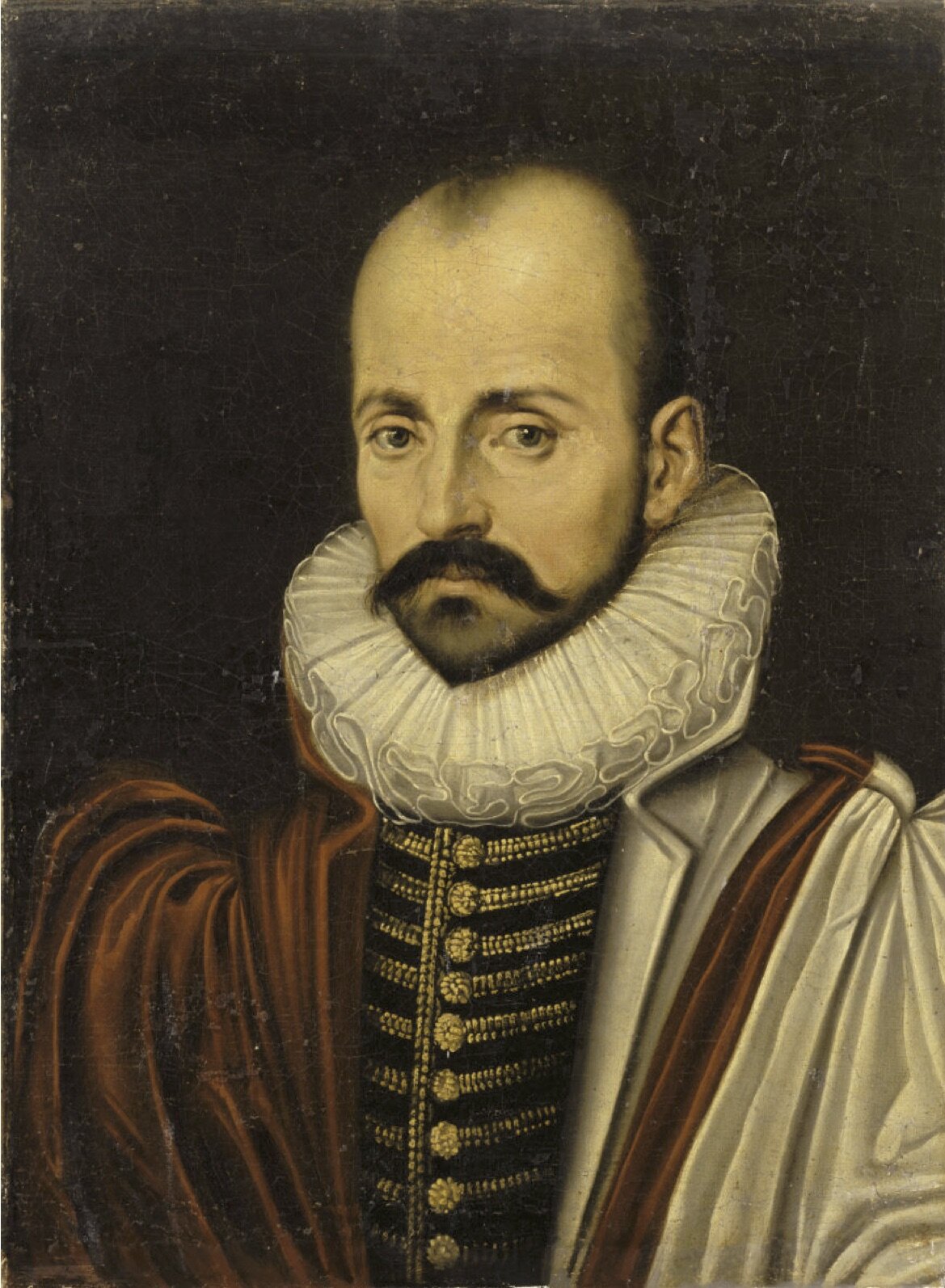The Man Who Invented the Essay
An excerpt from Thank You for Arguing.
In the winter of 1571, on his thirty-eighth birthday, one of history’s most original minds retreated to his castle tower. Michel de Montaigne had been a successful diplomat and businessman. He owned a winery, Chateau d’Yquem, that still makes pricey Sauternes. Now, with his life more than half over, Montaigne sat alone with his fifteen hundred books and his cat and his dog and began a series of experiments called “assays” (essais in French). He was making a deliberate metallurgy pun; an assay finds the components and value of a metal. But the word also means “attempt.” Montaigne’s as- says were an experiment on himself. They mentally weighed, melted down, and assessed the value of his own life. No one had ever conducted this kind of experiment before; and because of his essais, the world has never been the same. Montaigne’s writings ushered in the age of the Enlightenment, helped the Christian world recover from bitter religious wars, and became a chief inspiration for Thomas Jefferson.
And so Montaigne invented the essay, a genre of literature that has tortured students for many generations. Reading this funny, bawdy, conversational, ingenious man for the first time feels like meeting the greatest uncle you could imagine. You almost expect him to gently lift his cat off the chair and offer you a seat. He pours you a glass of his sweet golden wine and then tells you about the time he talked his way out of being held hostage by a group of bandits. But most readers don’t realize that Montaigne was doing something even more powerful than in- venting a new way of writing. His essays comprise one of the most effective arguments in human history. In a world that was tearing itself apart with conflicting eternal truths, Montaigne argued for a humble, science-loving, tolerantly curious view of humanity. His famous motto should begin every book: Que sais-je, “But what do I know?”
At a time when angry tribes are forming around conflicting certainties, Montaigne’s kind of persuasion offers more than a great way to improve your writing game. It can help you feel better about yourself, and maybe heal a whole society.




Some years ago, I gave a talk to 300 marketing executives at a major corporation. The subject was “How to Screw Up.” Being a master at screwing up, I felt well qualified for the presentation.